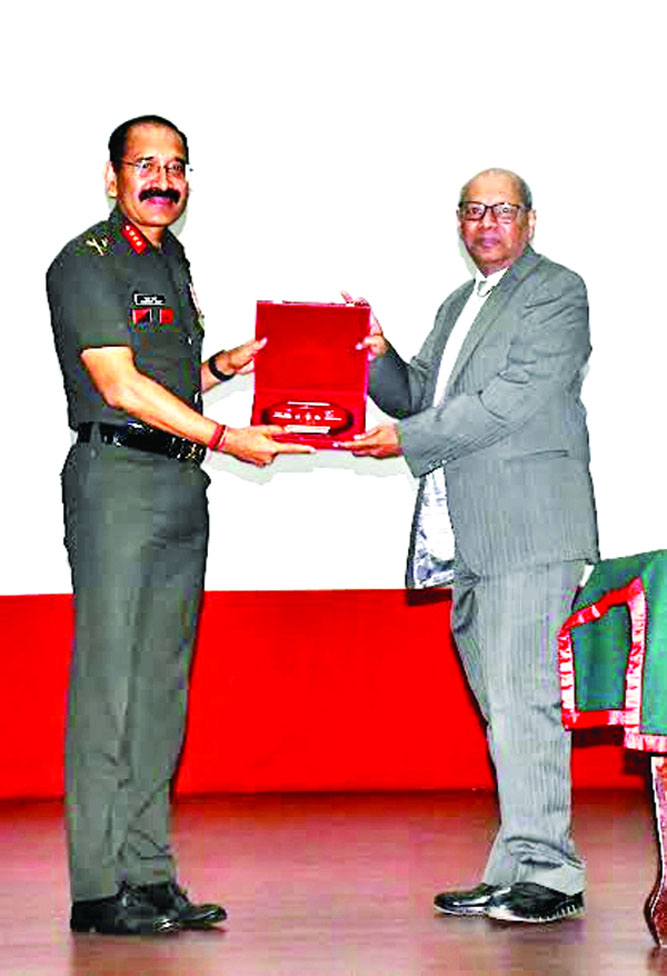DOGRA HERALD BUREAU
jammu, Oct 21
As part of the upcoming 78th Shaurya Diwas celebrations on 27 October 2024, the Field Marshal SHFJ Manekshaw Memorial Lecture was held today at the Infantry School, Mhow, Madhya Pradesh. Shri Gautam Mukhopadhaya, a distinguished former diplomat who has served as India’s Ambassador to Syria, Afghanistan, and Myanmar, delivered an insightful lecture on “The Global Churn: India’s Search for Strategic Autonomy.” His talk focused on the rapidly changing global order and India’s evolving role within it.
The event was attended by a large gathering of senior and mid-level serving officers to including Director General of Infantry, Infantry School Commandant and Military College of Telecommunication Engineering Commandant along with veterans at the Infantry School, Mhow, and was also streamed live to all 23 Infantry Regimental Centres.
Shri Gautam Mukhopadhaya discussed the shifts in the global order from bipolarity to multipolarity, highlighting the growing role of emerging nations like India. He emphasised that the future distribution of global power remains uncertain, influenced by critical factors such as climate change, technological advancements, demographic changes, and the cohesion of societies.
He also highlighted the impact of the climate crisis and disruptive technologies, such as artificial intelligence (AI), on global power dynamics. He warned that these factors have consequences beyond traditional geopolitics. Countries with younger populations, like India, have great potential but need to address challenges in education, employment, and technological innovation to fully capitalise on this demographic advantage. Shri Mukhopadhaya argued that India’s capacity to become a key global player will depend on fostering internal inclusiveness and stability, which are crucial in navigating the challenges of global competition. He further discussed the strategic challenges posed by an assertive China, noting that the West’s fragmented response has not adequately addressed China’s comprehensive approach to expanding its global influence.
He urged a rethinking of strategies, including investing in Southeast Asia’s agrarian economies, to counterbalance China’s dominance. In conclusion, he called for a balanced and inclusive approach from India, leveraging its historical strengths and democratic values to play a significant role in shaping the future global order.



























